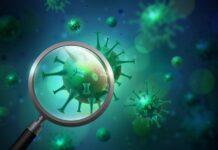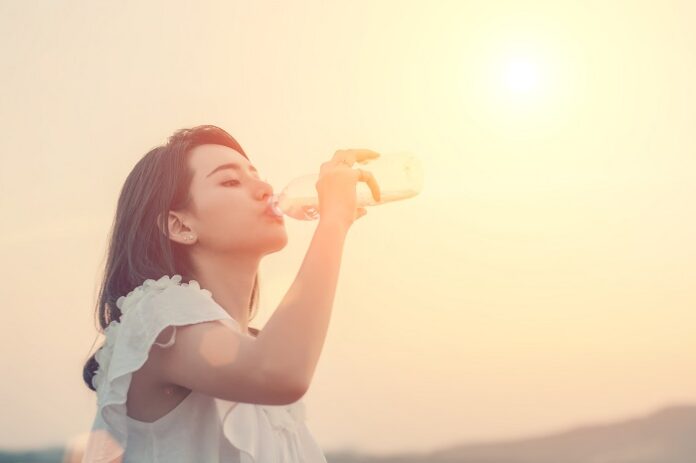The Indian Practitioner (TIP). What are the immediate health risks associated with heat waves?
Dr. Jatin Panchal (JP). Heat waves pose immediate health risks such as heat exhaustion and heat stroke, particularly affecting vulnerable groups like the elderly and those with chronic illnesses. Dehydration exacerbates chronic conditions. Heat-related illnesses in outdoor workers are common. Heat waves also increase the risk of sunburn and impact mental health. Hydration, staying cool indoors, and checking on vulnerable individuals are crucial during heat waves.
TIP. How do heat waves affect people with pre-existing health conditions?
JP. Heat waves can exacerbate pre-existing health conditions in several ways. Cardiovascular diseases may worsen due to increased strain on the heart from high temperatures and dehydration. Respiratory conditions like asthma can be triggered by poor air quality and heat-induced inflammation. Kidney diseases may worsen due to dehydration and electrolyte imbalances. Additionally, heat can worsen mental health conditions and increase the risk of heat-related illnesses in vulnerable individuals
TIP. What symptoms should people be aware of that indicate heat-related illnesses?
JP. Symptoms of heat-related illnesses include heavy sweating, weakness, dizziness, nausea, headache, and fainting (heat exhaustion). Heat stroke presents high body temperature, confusion, rapid pulse, hot and dry skin,muscle cramps and unconsciousness. Dehydration symptoms include dry mouth, thirst, decreased urine output, and fatigue. Prompt medical attention is crucial for severe symptoms like seizures or coma
TIP. What is heat exhaustion and how is it different from heat stroke?
JP. Heat exhaustion is a milder heat-related illness caused by prolonged exposure to high temperatures and inadequate hydration. Symptoms include heavy sweating, weakness, dizziness, nausea, headache, and fainting. Body temperature may rise but typically stays below 104°F (40°C).
Heat stroke, however, is more severe and requires immediate medical attention. It involves a body temperature above 104°F (40°C), confusion, rapid pulse, dry and hot skin, and can lead to unconsciousness or worse if not treated promptly.
TIP. How can people recognize the signs of heat stroke in themselves and others?
JP. Recognizing heat stroke signs is crucial:
- Physical Symptoms: High body temperature (above 104°F/40°C), hot and dry skin, rapid pulse.
- Behavioral Changes: Confusion, disorientation, dizziness, headache, nausea, and possibly unconsciousness.
- Immediate Action: Move to a cool place, cool the body with water or ice packs, and seek medical help urgently.
TIP. If a person suffers heat stroke, what immediate first aid should be administered?
JP. If someone suffers heat stroke: move them to shade or AC, cool their body with water or wet cloth on neck, armpits, and groin, offer water if conscious, monitor vital signs, and seek emergency medical help immediately. Avoid using ice-cold water. Heat stroke is a serious medical emergency requiring prompt treatment to prevent complications like organ damage or death
TIP. How do heatwaves impact the elderly and young children differently?
JP. Heatwaves affect the elderly by impairing their heat regulation, leading to dehydration, heat exhaustion, and heat stroke exacerbated by chronic conditions. Young children, with less efficient heat regulation and communication ability, are vulnerable to dehydration and overheating. Both groups require vigilant monitoring and interventions such as hydration and cooling measures during heatwaves to prevent serious health risks.
TIP. What precautions should people take during a heat wave to protect their health?
JP. During a heat wave, stay hydrated, preferably with water. Stay cool indoors, use fans or air conditioning, and wear light clothing. Minimize outdoor activities, especially in peak heat hours. Use sunscreen and seek shade if outside. Check on vulnerable individuals. Be vigilant for symptoms of heat-related illnesses and seek medical help if needed. These measures help prevent dehydration, heat exhaustion, and heat stroke during hot weather.
TIP. How can hydration help in preventing heat-related illnesses and what are the best practices?
JP. Hydration prevents heat-related illnesses by regulating body temperature through sweat. Drink 8-10 glasses of water daily, more in hot weather. Include electrolyte-rich fluids like sports drinks. Drink regularly, not just when thirsty, and avoid caffeine and alcohol. Monitor urine color for hydration status. Hydrate before, during, and after outdoor activities. Proper hydration is essential to prevent heat exhaustion and heat stroke during high temperatures.
TIP. How do medications and medical conditions influence a person’s risk during a heat wave?
JP. Medications like diuretics and antihistamines can impair temperature regulation during heat waves. Chronic illnesses such as cardiovascular disease and diabetes reduce heat tolerance. Age, fitness level, and behavioral factors like hydration influence vulnerability. Adjusting medication schedules, staying hydrated, and monitoring symptoms are crucial to mitigate risks during high temperatures.
TIP. Can heat waves exacerbate mental health conditions?
JP. Heat waves can worsen mental health conditions by increasing irritability, anxiety, and agitation. Sleep disruption due to heat discomfort can exacerbate symptoms of depression. Extreme heat stress may also lead to cognitive dysfunction and heat-related psychosis. It’s essential for individuals with mental health concerns to manage heat exposure, stay cool, and seek support to mitigate these effects during hot weather.
TIP. Are there specific dietary recommendations for staying healthy during a heat Wave?
JP. During a heat wave, focus on hydrating with water-rich foods like watermelon and cucumbers. Consume electrolyte-rich foods such as bananas and coconut water to maintain salt balance.Optfor light, easily digestible meals and avoid caffeine and alcohol, which can dehydrate. Choose chilled or room temperature foods to help regulate body temperature and support overall well-being during hot weather.

























